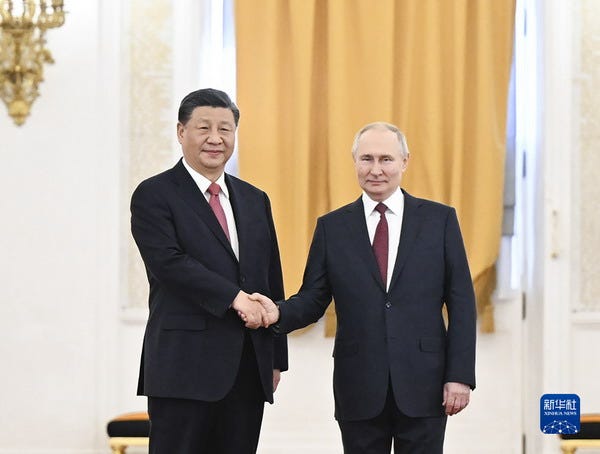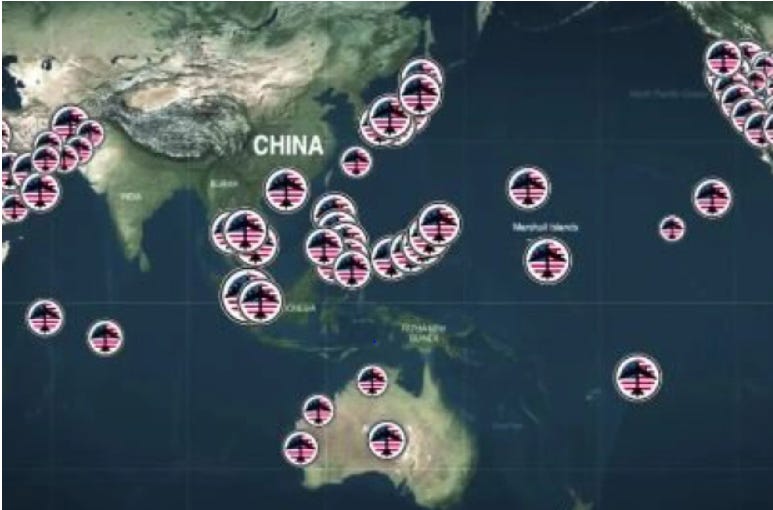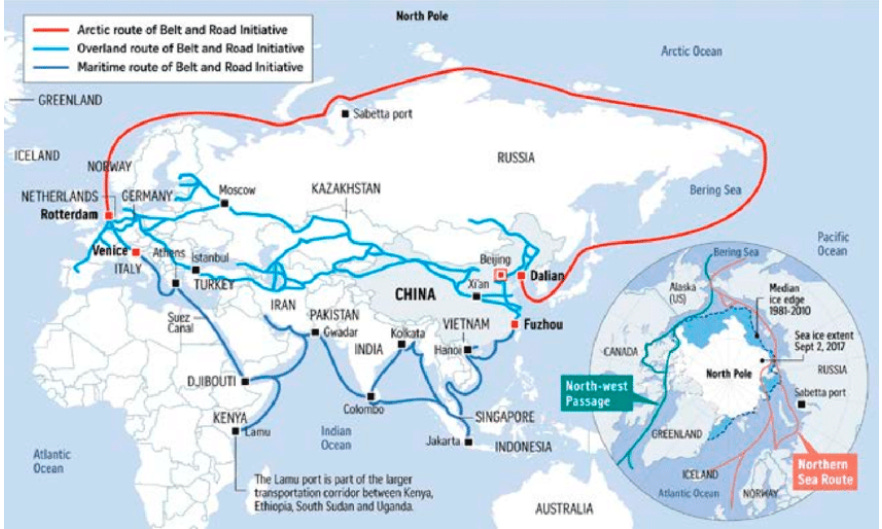The changing of the guard and the new world order
The most significant meeting of world leaders since Potsdam
‘No single country should dictate the international order’ - Xi Jinping
While the US was concerned over bank collapses, and if former president Trump would be arrested, an historic meeting was held in Moscow between Russian president Vladimir Putin and Chinese President Xi Jinping.
Xi and Putin have just completed their 40th face to face meeting. China and Russia have become much closer together over the last decade. China and Russia signed a non-aggression pact in 2014, and agreed to a ‘Comprehensive Strategic Partnership’ in 2019.
Many non-Western commentators argue that US actions over the last couple of years – ramping up US presence in the South China Sea, and US support for Ukraine – is pushing China and Russia together. Xi, before his arrival in Moscow talked of the ‘damaging acts of hegemony, domination, and bullying’ and that countries around the world are ‘eager to find a cooperative way out of the crisis’.
US military bases encircling China
Historical meeting
During Xi and Putin’s historical meeting in Moscow, a number of agreements, memorandums, and protocols were signed. These included agreements increasing cooperation in fields ranging from trade and industry, science and technology, and military cooperation.
They also discussed a 12-point roadmap to end the Russia-Ukraine war, which has already been criticized by the United States before it has been completed, and presented to both nations.
Putin said at a press conference after the meetings that China and Russia were ‘at the highest point in history, and that trade and economic cooperation would be the top priority’. China-Russian trade grew by 30 percent in 2022, and is expected to reach to more than US $ 200 billion this year. This has been fuelled by the US and European embargo against Russia.
One of the most significant agreements was to move away from the US Dollar as a trading currency and replace it with the Chinese Yuan. This would not just be between China and Russia, but include BRICS countries, and extended to Asia, Africa, and Latin America.
Trade is expected to substantially grow through BRICS, and other nations across Central Asia, and the Middle East, into Europe, while the United States and Western Europe are heading into a recession. XI and Putin have agreed to extend the Belt and Road Initiative (BRI), to enhance logistics and cross-border infrastructure, to facilitate greater trade.
Belt and Road Initiative (BRI)
In addition, agricultural cooperation will be stepped up to enhance food security, as well as new agreements to improve cooperation in minerals, metals, chemical products, and the exchange of energy, which will take up the slack left by Western Europe’s embargo of Russian gas. A new Mongolian pipeline from Russia to China will be constructed. China and Russia will also enhance technology, IT, and AI cooperation. Both countries have agreed to jointly develop fast neutron reactors (FNR), and closing the nuclear cycle.
Beijing and Moscow have agreed to conduct joint maritime air patrols and increase the intensity of joint military exercises.
In Xi and Putin’s joint statement at the end of their summit pledged to ‘deepen relations and comprehensive partnerships and strategic interaction to enter a new era’.
Changing the world order
This is the beginning of a change in the world order. The biggest realignment of primacy in the world for over 100 years. Xi and Putin are espousing a multipolar world, rather than the unipolar world, dominated by the US and its allies. US economic dominance will be greatly affected by the rise in the use of the Yuan by China and Russia’s trading partners.
The US has missed a number of foreign policy and trade opportunities over the last decade. Foreign-defence-trade policies have been over dominated by the Pentagon think tanks, and poor decisions like the withdrawal of Afghanistan. This single event symbolised military US weakness, and took away any residual US influence within Central Asia.
China and Russia see themselves encircled by the US and its allies. The increasing approach of NATO towards Russia’s borders on one side, and the US build-up in the South China Sea-Pacific encircling China has become a central plank in both leader’s thinking. Both Xi and Putin were concerned with Britain’s announcement of sending depleted uranium shells to the Ukraine, where both leaders pledged they would respond accordingly.
World trade routes are set to dramatically change under these agreements. They will weaken US embargoes and dramatically weaken US dominance across many fields. While the US Pivot to Asia and European strengthening of NATO have been primarily military in nature, China and Russia have focused upon trade, technology, and logistics. In the long run, these ‘soft power’ initiatives are much more powerful than miliary might.
Xi and Putin’s summit was the most significant meeting of world leaders since Potsdam.
Subscribe Below:





